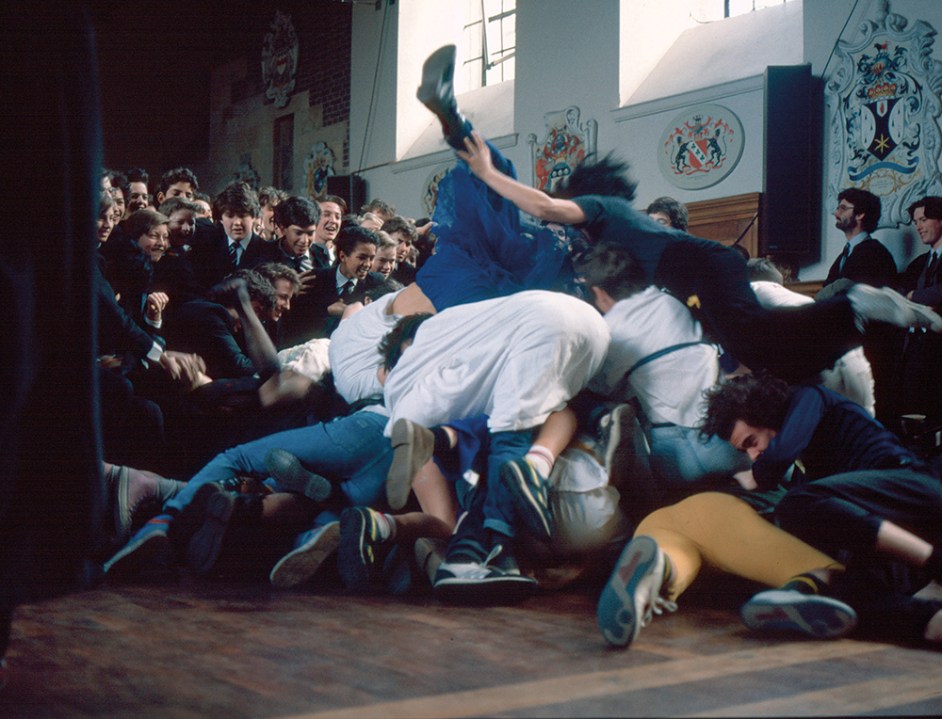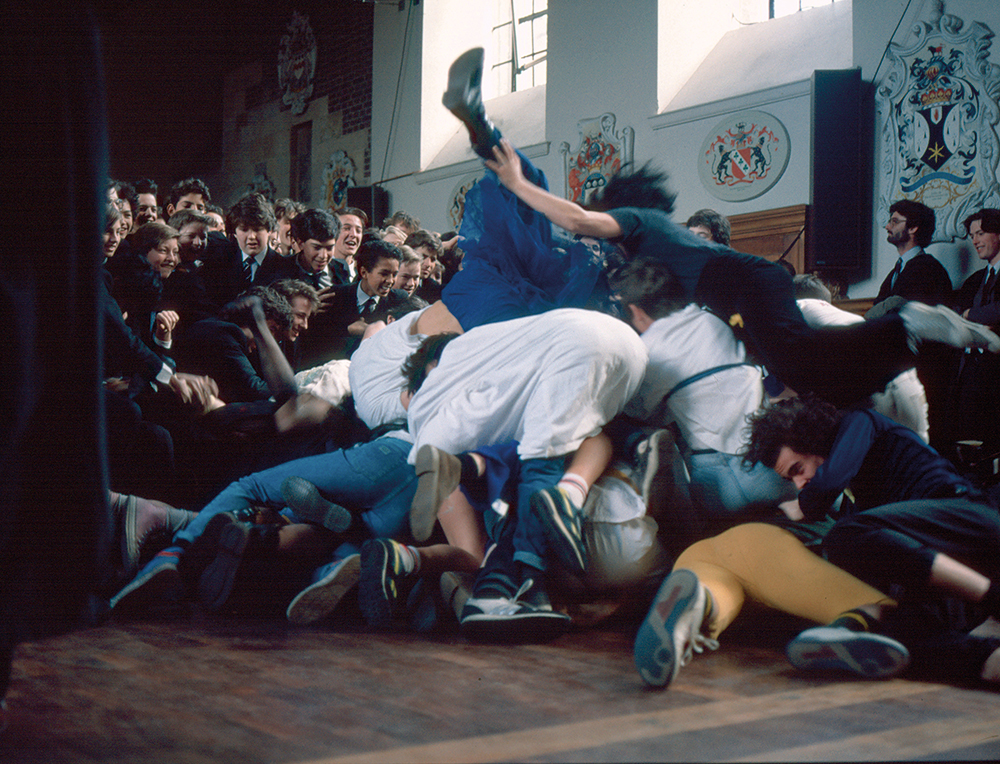On every Shrove Tuesday since at least 1753, boys at Westminster School have gathered in the hall for a mad scramble over a pancake. The Pancake Greaze (pictured) is a cherished tradition that sees one pupil crowned the winner for grabbing the biggest portion, which the cook tosses into the centre of the hall from a height of 15ft, as the rest of the school cheers on. The champion is awarded a golden coin by the Dean of Westminster, accompanied by the headmaster and sometimes royal visitors. The more unsavoury part of the tradition – nominally beating the cook with Latin primers if he fails to get the pancake over the iron bar three times – has been abandoned. There have been other modern updates. In keeping with our health-and-safety conscious times, the pancake tussle now takes place over gym mats.
Peculiar traditions, customs and rules are a staple of Britain’s public schools. Typically, the older the school, the more eccentric the traditions. My school, Bromsgrove, which was founded in 1553, had an ancient rule allowing the head boy to keep a goat on the school green. Why? I haven’t the foggiest. And perhaps neither does the school administration, who did not respond to my enquiring emails. The rule was not exercised during my time there, but a head boy did make use of his historic privilege as recently as 2012, evidenced by a picture on social media of him, the headmaster and the goat.
Some traditions are more serious. They have the purpose of honouring cultural heritage and nurturing a sense of community. In Winchester College, for instance, the annual Illumina Ceremony commemorates the demolition of a wall that separated Scholars (boys who lived in the College) and Commoners (who lived outside it), restricting integration between the groups. Just like in 1862, the year the wall came down, today’s Wykehamists place lit candles in the niches of the surrounding walls and build a bonfire to celebrate unity. The pictures from the ceremony – of boys in long black capes holding slender white candles – are magical. Perhaps words like old-fashioned, bizarre or cult-y come to mind. And there’s no denying there is a weirdness to the idea of students wrestling each other for a handful of an oversized pancake. But such practices serve a valuable and increasingly important purpose. They fulfil the need to feel part of something bigger.
In Uppingham School’s folklore, to get a snow day, the snow must be measured against the head boy’s knee (I wonder if the length of lower legs was ever a factor in appointment decisions). It’s silly. But it gives people a point of commonality. It’s something that sets your community apart from others, making it yours.
Traditions are shortcuts to connection, and no demographic is in such dire need of it as hormonal, angsty and unmoored teenagers. Traditions also socialise individuals into a collective values system. They help make sense of what your community hopes you will become and what it expects from you. The perfect example is Eton’s ‘leggit’ practice which is, by Eton standards, a relatively new custom. When the boys want to protest unpopular decisions from the school authorities, they gather en masse on Eton High Street around the Burning Bush, an ornate Victorian lamppost designed by the architect Henry Woodyer. At the cry of ‘leggit!’ from a ringleader, the boys disperse, charging down the street at full pelt and roaring as loudly as possible. The school does not approve of leggits, but can do little to stop them. ‘From my memory, the school’s official line is that leggits are dangerous,’ one Old Etonian tells me. ‘And, actually, when I was there in the early 2000s, one F-Blocker [boy in his first year] broke his nose. The word was he ran into the Burning Bush, but I think that a mischievous rumour.’
The last large-scale leggit was a few years ago when the boys challenged the closure of the beagle kennel. Would a bunch of teenage boys have organised themselves into a political pressure group over scent hounds in the absence of the tradition? I am not so sure.
Some traditions seem too absurd to be true. Indeed, sometimes they are. I could have sworn that at Bromsgrove we had another rule which stated that if the head boy and head girl got married after graduation, our school would buy them a house. I could find nothing in the archives that confirms this and none of my schoolmates remembers anything about it, so it could be a complete figment of my imagination. But I hope that I’m right. Nowadays, young people need to make use of any opportunity to get on the property ladder.








Comments